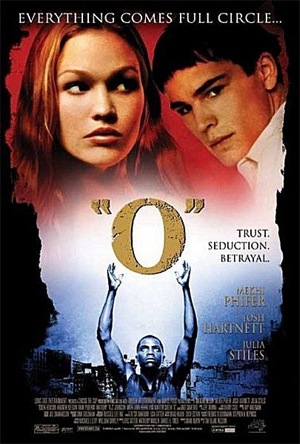The reason why modernized versions of Shakespearean plays are so successful is that they take the brilliant works of Shakespeare and interpret their meanings and plots for modern audiences to enjoy.
The sophisticated and eloquent writing structure used by Shakespeare in his plays often prevents the general populace from understanding the underlying imagery and significance of symbols, characters and actions in his plays.
Only those who take the often lengthy effort to grasp and understand these themes, motives and symbols can appreciate Shakespeare’s brilliance to the fullest extent. However this usually only applies to those specifically studying Shakespearean text or those with extensive backgrounds in English literature.
By modernizing these plays and presenting them to society, we can connect with the problems and struggles of the characters in the Elizabethan and Jacobean eras. Themes such as betrayal, infidelity, love, passion, romance, death and manipulation are all problems that even today’s world is faced with. Therefore these modernized versions are often very applicable and relatable to our lives when the setting and cultural restraints of the Renaissances era are removed.
Modernized renditions allow many of us to understand the marvelously complex writings of the greatest English playwright in history without the tedious and arduous process of interpreting them ourselves.
The movie “O” was somewhat accurate to the play, Othello, on which it is based upon. The characters’ ethnicities are all correct; the character portraying Othello is indeed black and surrounded by a cast of all Caucasian students where he struggles with racist undertones.
All the characters are also present, however different ages (mostly teenagers) and have different names, but are still easy to distinguish which Shakespearean characters that they allude to Odin- Othello, Hugo- Iago, Desi- Desdemona, Michael- Michael Cassio, Emily- Emilia, Roger- Roderigo, Coach Duke Goulding- Duke of Venice, Dean Bob Brable- Brabantio, and Brandy- Bianca.
As opposed to being set in Venice/ Cyprus, the movie transpires at a boarding school and the Turkish war is modernized into basketball. As in the text, Odin is the leader of the school basketball team with Hugo and Michael following him. Once again similar to the text, Odin overlooks Hugo for a position he believes that he rightfully deserves, MVP, which he shares with Michael.
The drama surrounding Odin’s relationship with Desi being exposed by Hugo and Roger to her powerful father, Dean Bob Brable, is also true to the original storyline and the resulting discourse is also accurate. Roger’s secret love for Desi, Emilia’s rejection by Hugo and attachment to Desi, and Hugo’s secret plan for revenge are all present and transpire along with similar means to the text.
The use of a symbolic scarf in lieu of a handkerchief shows the adaption to modern context as well as Cassio’s discharge from the team at a house party, and the carjacking of Michael by Roger and Hugo. Like Othello, Odin is indeed deceived by Hugo and pinned against Desi and Michael through his tragic flaw of gullibly; however, he is given an additional vice of being addicted to cocaine which he goes into remission over when Hugo convinces him that Desi is cheating on him with Michael, which perhaps refers to Othello’s epilepsy.
The events leading up to and during the plot are modernized but also very accurate to the timeline of the original play. Odin does smother Desi, and Roger and Hugo’s attempt to kill Michael does result in failure and Roger wounding Michael and Hugo killing Roger. In addition, like in the play, it is Emily who exposes Hugo for the villain that he really is and he does kill her out of rage. Odin also takes his life as in the play, after revealing his enlightenment on the power of persuasion and manipulation; Hugo is captured at the end of the play.


Written by:
Prof. W. Anderson is an associate professor at the department of General Science and History at St. Rosemary Institute. He received his Ph.D. from U. of Washington, Seattle in 1996 (PhD advisor: Serge Roy), and has been teaching ever since. His current research interest is teaching, maintaining this site, his archival projects and spending time with his kids. He is also the Deputy Director for the Center for Scientific Inquiry Research (SIR); He received an N.A CAREER award in February 2006.
Im doing a paper and i need to do a annotated bibliagraphy and can i have the citations for whoever wrote this? please.
did you get it? You can use easy bib